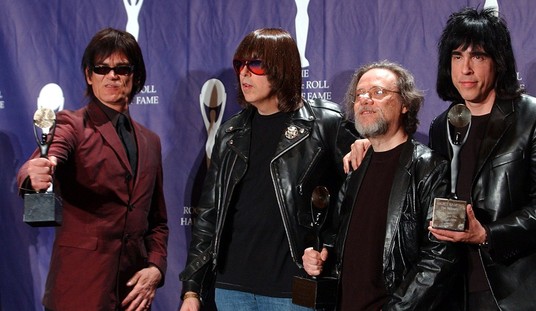“Hard to imagine a segment less likely to convince vaccine-hesitant people to get vaccinated,” tweeted writer James Surowiecki about the clip below. “‘We’re obnoxious and full of ourselves, and we’re making an argument from authority! How can you not trust us?'”
It’s not great.
But it’s true to the spirit of late-night political comedy. It’s strident, broadly unfunny, and doesn’t make the barest pretense of trying to influence anyone who doesn’t already agree enthusiastically. It’s in-group humor at the out-group’s expense. Watch, then read on.
A lot has been written over the past four months about how to get vaccine skeptics to take the plunge. The one strategy that never, ever features is berating them. Not that Kimmel has a duty to persuade; he’d say the goal here was laughs, not vaccine salesmanship.
Did it succeed even on that count, though? A two-and-a-half-minute set-up for the punchline, “You’re a dumbass if you don’t listen to these better-educated people”?
Maybe the problem isn’t lack of intelligence but lack of community. David Brooks:
That basic sense of peoplehood, of belonging to a common enterprise with a shared destiny, is exactly what’s lacking today. Researchers and reporters who talk to the vaccine-hesitant find that the levels of distrust, suspicion and alienation that have marred politics are now thwarting the vaccination process. They find people who doubt the competence of the medical establishment or any establishment, who assume as a matter of course that their fellow countrymen are out to con, deceive and harm them.
This “the only person you can trust is yourself” mentality has a tendency to cause people to conceive of themselves as individuals and not as citizens. Derek Thompson of The Atlantic recently contacted more than a dozen people who were refusing to get a Covid-19 vaccine. They often used an argument you’ve probably heard, too: I’m not especially vulnerable. I may have already gotten the virus. If I get it in the future it won’t be that bad. Why should I take a risk on an experimental vaccine?
That’s what happened with Joe Rogan last week. Should a healthy 21-year-old get vaccinated, he wondered? Well, no, since they’re not at personal risk of serious illness, he reasoned. But we can’t reach herd immunity with that attitude since herd immunity requires a lot of low-risk people (like kids) to get immunized anyway. And if we don’t reach herd immunity then the people who can’t get vaccinated for medical reasons, like the immunocompromised, are at dire risk if they try to participate in society again.
A communitarian pitch is one way to appeal to holdouts. Another is to have a trusted figure, ideally a doctor, address the mistaken impressions about the vaccine they might have. Because there are a lot of those out there:

People who say they’re definitely not getting vaccinated are nearly twice as likely to have heard one or more of those myths (81 percent) than people who’ve already had at least one dose (43 percent). An older member of my own family thought the vaccine contained the COVID virus itself, an assumption that’s probably derived from the public’s experience with the polio vaccine. That vaccine hit the market when he was a kid; it involved taking the virus itself, killing it, and then injecting it into people to produce antibodies. (Some later variations of the polio vaccine use a *live* but weakened virus, which can cause outbreaks if the virus isn’t weakened enough.) If you haven’t read up on how the mRNA vaccines work — and how many people have? — and your main point of reference on vaccines is Jonas Salk’s innovation then it’s understandable that you might worry that the vaccine will accidentally give you COVID.
But it’s not true. The Pfizer and Moderna vaccines instruct your cells to produce only the spike protein, not the virus. I wonder how much good could be done in convincing holdouts to get vaccinated if the feds did one five-minute video explainer with Fauci or whoever clarifying that point.
Giving people more information about the vaccines’ efficacy can only help too. The latest real-world data from Israel about Pfizer is as encouraging as one could hope for:
The analysis was conducted by Dr. Sharon Alroy-Preis, head of public health services at Israel’s Health Ministry, with international collaborators. It found that full vaccination, involving two Pfizer doses, is 95.3% effective in preventing infection. Pfizer’s clinical trials suggested this rate, but doctors were unsure whether it would be so closely replicated in the real world.
It is 97% effective in preventing symptomatic illness and 91.5% in protecting against asymptomatic infection.
The researchers found that vaccines are 97.2% effective against COVID-19-related hospitalization.
Not only that, it’s almost equally effective against the British variant of the virus and solidly (but less) effective against the tricky South African variant, which seems able to evade AstraZeneca’s vaccine. More doctors offering people better information like that to replace disinformation will get us closer to where we want to be.








Join the conversation as a VIP Member